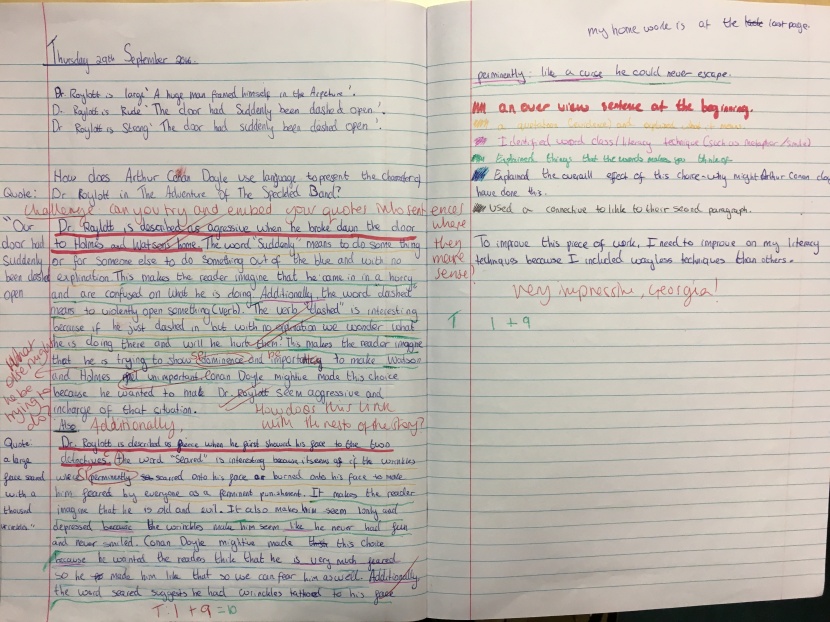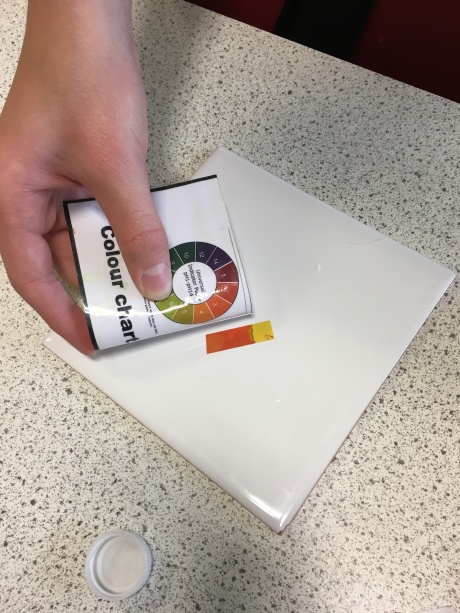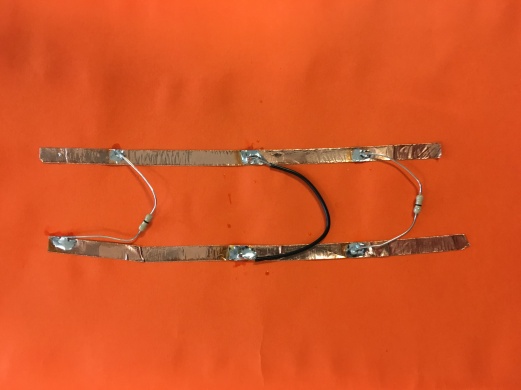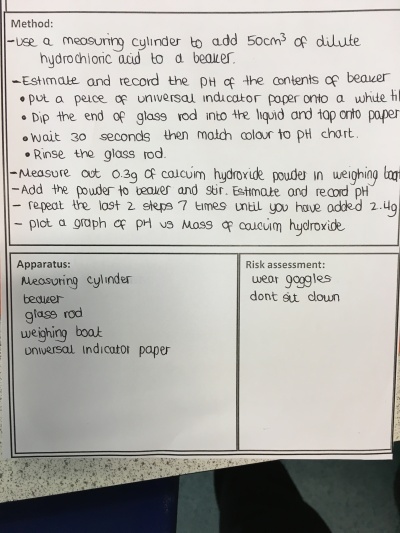Bright Spots // 21st October
Mrs Lynett (Geography) – Year 8 students were spending a lesson catching up on missed work. This is a constant challenge in schools – how do we catch students up who fall behind? Mrs Lynett’s approach is to build lesson time in once a term to go back and revisit tasks that are incomplete or missing. Before the lesson Mrs Lynett prepared a checklist for each student so they knew precisely what they needed to catch up on. They were also provided with examples of ‘excellent work’ to help model expected standards of work. For students who were up to date, they were given a challenge task to deepen their understanding further.
Mrs Bush (Maths) – Year 10 students were interpreting frequency tables in an attempt to make a conclusion about data. Mrs Bush provided some good live modeling by working through an example on the board. During the modeling she also asked a series of targeted questions to challenge students to think about the process and elaborate on their initial ideas. Initial questions were often followed up with ‘why’ and ‘how’ style questions to encourage further thinking.
Ms Khahra (English) – Year 11 students were busy planning an essay. Students were working in silence which allowed them to really concentrate on the task at hand. Ms Khahra used a selection of prompts to help students plan their essays, this was available as a scaffold if needed. Students were working independently as a result of previous input form the teacher. In order to build knowledge over a sequence of lessons Ms Khahra had made use of memory platforms to force students to recall information from previous lessons to aid learning.
Ms Siddiqui (English) – Year 9 students were responding to feedback on a piece of work from a previous lesson. Ms Siddiqui had made use of the ‘code marking’ strategy (that will have decreased the time taken to give feedback to students) which places emphasis on students to engage with the targets they have been assigned to improve the work. Before students started, Ms Siddiqui lead a quick discussion about why acting on feedback was important and the students came up with some interesting points such as ‘to identify mistakes and improve work’, ‘to revisit work to help remember it.’ Explaining the ‘why’ behind these strategies tends to help students buy in which will hopefully lead to further learning.

Year 9 English student highlighting different sections of her essay before responding to feedback.

Ms Jukes (Technology) – Year 8 students were engaging in some deliberate practice. Their project this term is to design and create a functioning speaker. The work in their books shows that they are building both their design and technical knowledge over a series of lessons to prepare them to not only design something that looks good but also have the confidence to create a working circuit. The practice in this lesson focused on soldering and students were presented with a task to help them think about the technique. Whilst this was happening Ms Jukes circulated the classroom offering live feedback to improve technique and challenge student understanding.

Deliberate practice in Technology.

Year 10 Science – student plan for practical.





